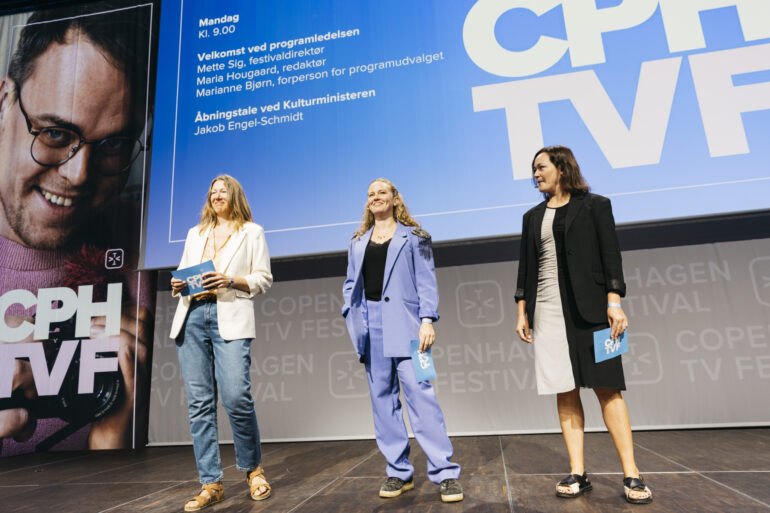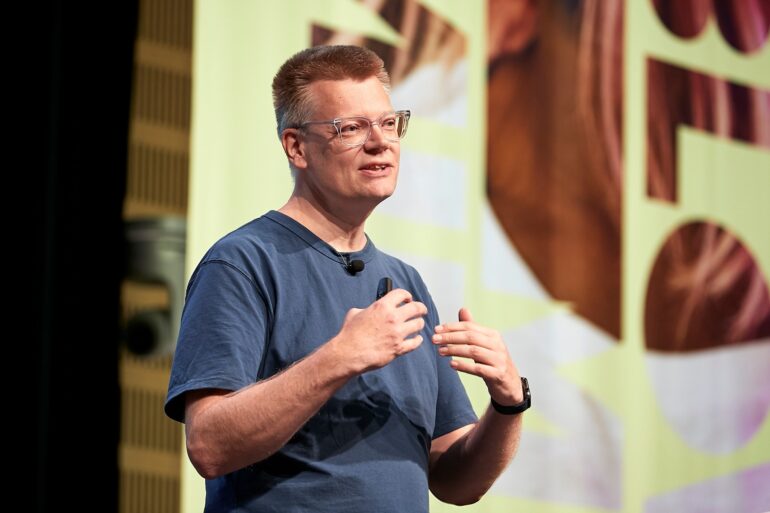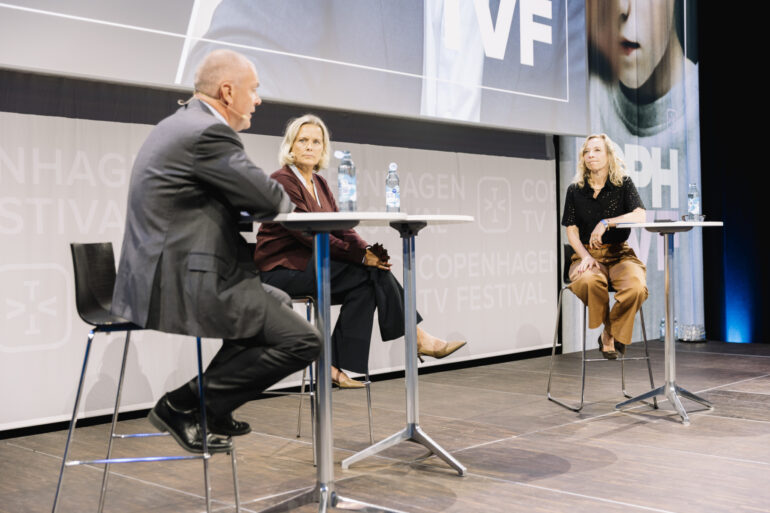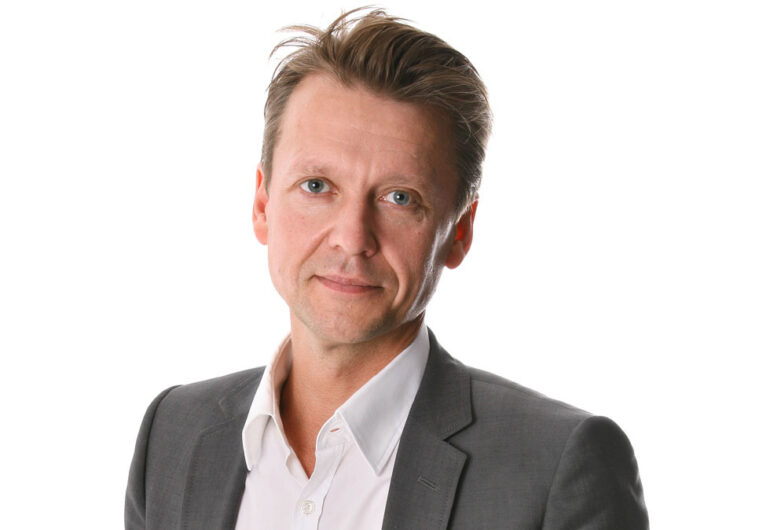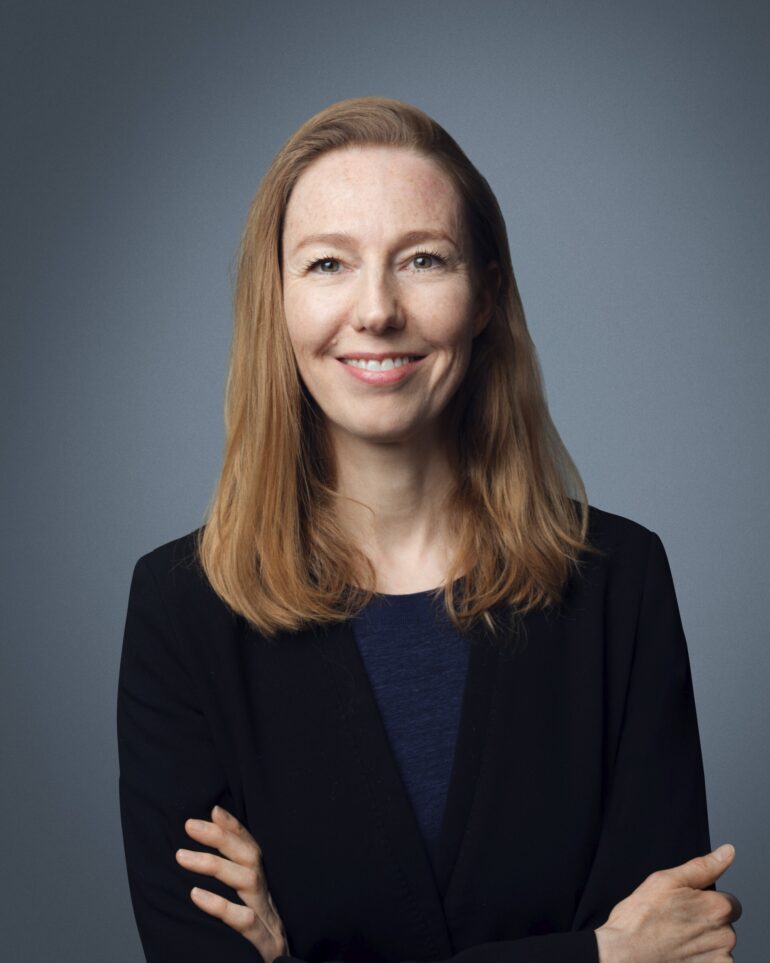Written by: Per Laursen
03.09.25
The 25th CPH TV Festival posed a thought-provoking question: What will be the state of the Nordic TV and production industry five years from now?
CPH TV Festival: The 25th Copenhagen TV Festival, held in late August, had no official theme, but an unofficial theme emerged: “Five years from now?”
‘Five years’ is not the distant future, nor right around the corner. Many sessions asked: What will the state of the industry be like in five years? What will television and production look like in 2030? Does the industry still exist in any recognisable form, and what is its role?
Several speakers were asked on stage to share their sober predictions - and hopes - five years ahead.
“The five-year scope is relevant, because we have set a benchmark that the industry must be innovative and take an international outlook,” Anna Porse Nielsen, Director of The Danish Producers’ Association, told Nordisk Film & TV Fond.
“So, where is our industry in five years? That depends. The gloomy outlook is pressure from large international tech companies, younger target audiences that are not seeking traditional media and content, a rights system under stress, and the rise of AI. On the other hand, the Danish industry remains strong, and has endured both ups and downs before. We excel at collaboration, innovation, and business.”
Concluding his annual keynote, “Keld’s guide to the Galaxy”, TV trendspotter and advisor Keld Reinicke reminded attendees that public service is not defined as everybody over 60 years.
“No doubt, TV will still be here in five years and beyond, but all broadcaster-streamers have five years to reevaluate their situation and take tough measures, possibly forming new partnerships, to stay relevant and accessible to everyone,” Reinicke said.
The five-year premise proved timely and relevant, as both DR and TV 2 are in the process of finalising their strategies for 2030. Many voice concerns about the future of Nordic public service, but by 2030, the industry will know whether public service TV has failed or not.
“Many looming threats present themselves, but in five years, I believe the jury is out on whether we are winning or losing. Then, our discussions will be more focused on whether we have the upper hand or not, “ DR’s new director general, Bjarne Corydon, said, accentuating that today he sees DR as a strong, healthy organisation, based on key data and figures.
“The main issue for management moving forward is technology. We succeed if we remain relevant to Danes in five years, but that requires us to make technology work hand in hand with great content,” TV 2 Denmark’s CEO Anne Engdal Stig Christensen said, specifying that “distribution” is the keyword in the foreseeable future – i.e. identifying new ways, partnerships, to reach all citizens, of all ages.
The five-year perspective for DR and TV 2 will likely include more collaboration, standing closer together as two national pubcasters – one commercial – in an ocean of platforms and screens.
“We are not really competitors; in fact, we need each other in many ways,” Christensen said.
“The worst-case scenario would be if DR and TV 2 succeed in wearing each other out in competition,” Corydon warned.
Like competitor TV 2, Viaplay recognises a profound challenge in retaining future subscribers and viewers in the long run - viewers who have very different media habits from their parents. Today, viewers of Viaplay's leading linear brand, TV3, are 60 years old on average, according to Morten Mogensen, Programme Director at Viaplay Denmark.
“The average viewer age when I came to TV3 in 2004 was 34 years,” Mogensen said, to establish the challenge facing broadcasters and streamers. Mogensen readily admitted that he does not have an easy solution to the industry’s significant issues.
“However, I believe we will become more outgoing in the social media space – that is, YouTube, even though there are good reasons not to move to YouTube (offering content for free).”
Mogensen is confident that in five years, Viaplay will have more Danish-produced content, whether commissioned or produced in-house. He expects sports rights to become even more fragmented than they are now, due to rising costs.
Warner Bros. Discovery (WBD) Nordics has not penned a voluminous five-year strategic plan, but WBD will approach 2030 with an objective: to re-establish a strong presence in scripted, Pil Gundelach Brandstrup, GVP of Original Production, Networks, and Streaming, Nordics, told attendees at the Copenhagen conference. WBD will soon greenlight scripted projects for key markets Sweden and Denmark. The goal is to commission an average of four Nordic drama series every year, two for each of Sweden and Denmark.
“We are likely to give the first ‘go’ in just a couple of months,” Brandstrup said.
Scripted shows in 2026, 2027, and further will be made on moderate budgets, as WBD’s position in the Nordic markets cannot sustain very high budget levels.
“We are beyond the days of very costly scripted productions. We operate with reasonable budgets to ensure that we have a sustainable production output,” she said.
’The Copenhagen TV Festival 2025’ was organised by the Danish Producers’ Association, with support from, among others, Nordisk Film & TV Fond.
